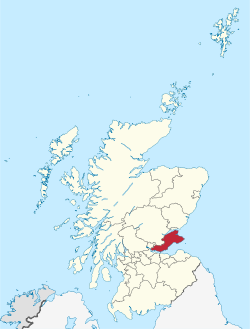 |
| Fife, Scotland - Credit Wikipedia |
# 10,872
With the exception of France, bird flu outbreaks in Europe have been scarce this winter, although the UK did report three outbreaks (2 H7 & 1 H5) in 2015. Overnight the Scottish government announced the detection of (likely LPAI) H5 on a farm in Dunfermline, roughly 15 miles north and west of Edinburgh.
While full lab analysis is awaited, the usual precautions are ordered around the affected farm, and the birds there will be culled.
Adjacent farms will monitored for signs of infection, and the word has gone out to all farmers in the UK to remain vigilant. For now, this appears to be an isolated case, although that could change in the days ahead.
This from the Scottish Government Website.
Avian influenza case
Poultry industry urged to be vigilant.
Scottish poultry producers are being urged to stay vigilant following the reporting of a suspect case of avian influenza in Fife.
A suspect case of avian influenza has been identified in chickens on a farm in Dunfermline.
Initial test results have indicated presence of a notifiable strain of Avian Influenza (H5) and the clinical picture suggests that this is a Low Pathogenic strain and further testing is underway to confirm the strain.
In order to limit the further spread of disease, appropriate restrictions have been imposed on the suspected premises and any identified contact premises.
The birds at the suspect premises will be humanely culled and a 1 km Temporary Control Zone (TCZ) put in place around the farm.
Within this zone a range of different controls are in place which include restrictions of the movement of poultry, carcasses, eggs, used poultry litter and manure and restrictions on bird gatherings.
There have been a number of recent cases of avian influenza across continental Europe in recent months including three cases in other parts of the UK in 2015.
Scotland’s Chief Veterinary Officer, Sheila Voas said:
“We have taken immediate action to contain this case as part of our robust procedures for dealing swiftly with avian flu.
"Evidence suggests this is a low severity form of the virus however we are taking action to ensure that the disease does not spread or develop into a more severe form.
“I would urge poultry keepers in the surrounding area to be vigilant for any signs of disease and to ensure they are maintaining good biosecurity on their premises.”
Cabinet Secretary for Rural Affairs Richard Lochhead said:
"Livestock owners and the general public should be assured that we are doing everything we can to control and prevent the spread of the disease. Any poultry producers who are concerned should immediately seek veterinary advice.”
Dr Jim McMenamin, Consultant Epidemiologist and Respiratory Infection lead for Health Protection Scotland said:
“Based on what we know about this strain of avian influenza and the actions that have been taken, the risk to human health in this case is considered very low. Health Protection Scotland continues to work closely with Animal Health throughout this investigation"
Rita Botto, Head Veterinarian of Food Standard Scotland said:
“On the basis of current scientific evidence, Food Standards Scotland’s advice is that bird flu does not pose a food safety risk for UK consumers.”